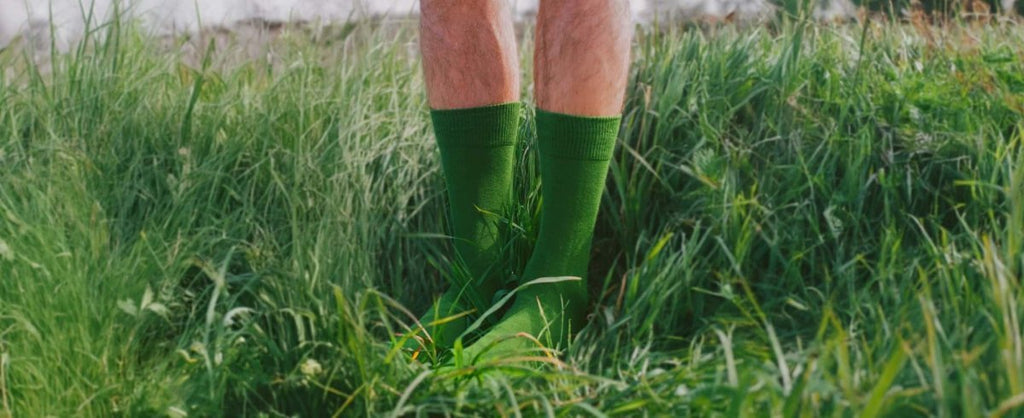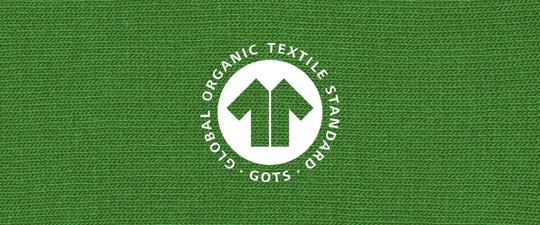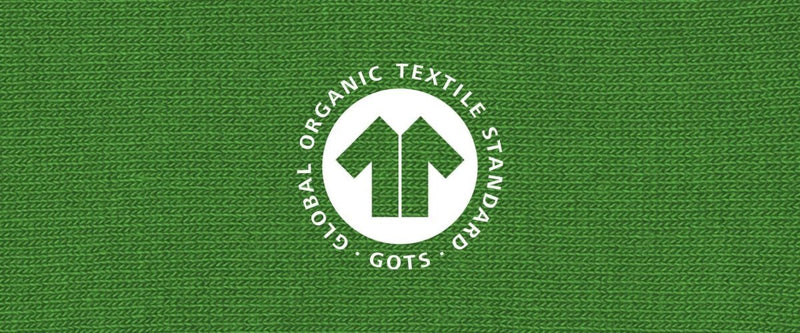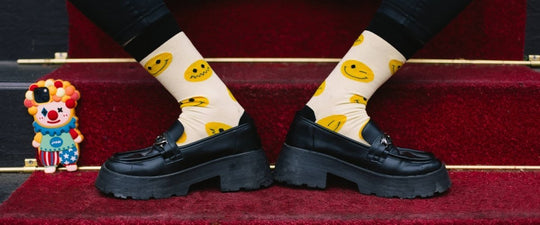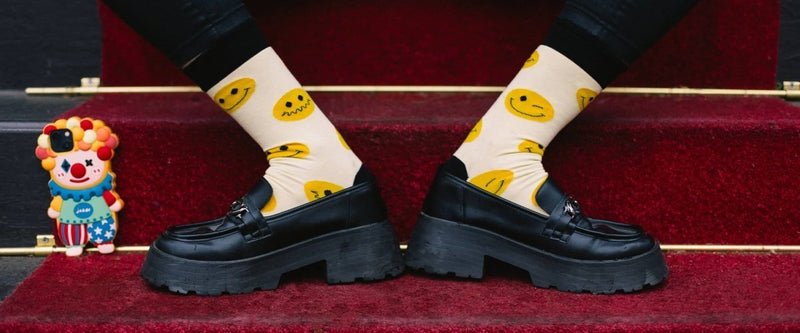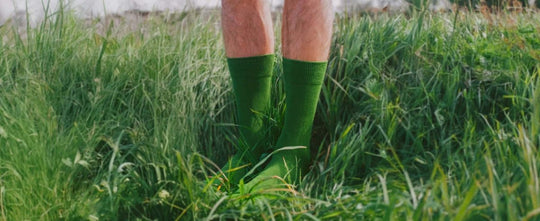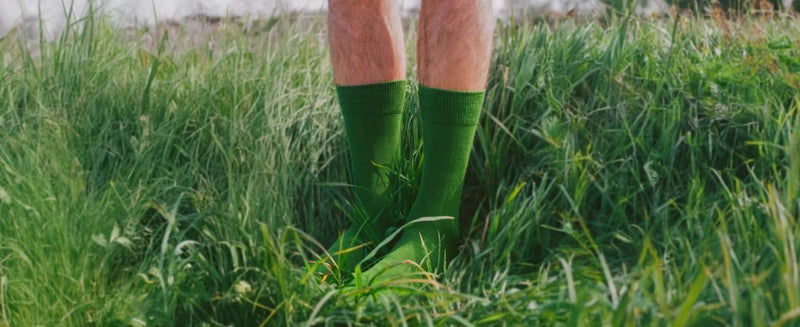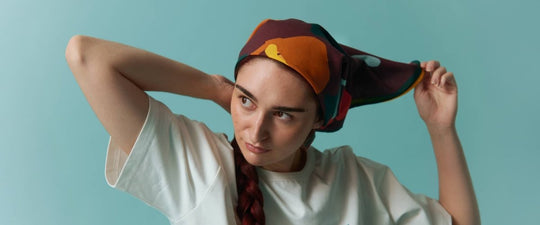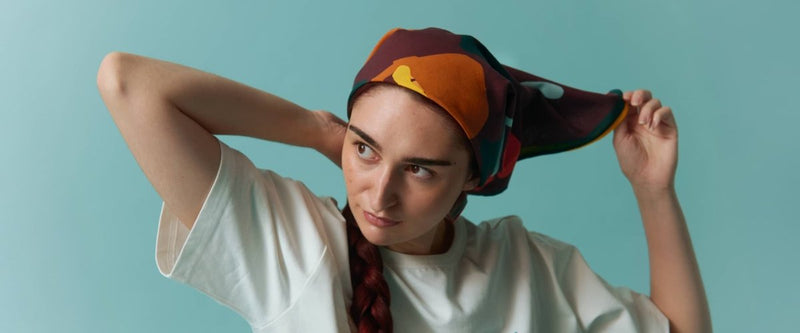We at DillySocks firmly believe that each of us must take care of the environment. That we should all use resources carefully. And that we act as sustainably as possible in our actions as a fashion brand. We are convinced that sustainability must be pursued on various levels. Because this is the only way the world can continue to inspire us with its colors every day for a long time to come, and this is the only way every pair of DillySocks is a statement for a more colorful, fairer and more ecological world.
How do we live the concept of sustainability at DillySocks? We'll take a closer look at that in this article. To start with, we'll give you a brief overview of sustainability management - because it will give you a better understanding of our sustainability approach.
Contents
ESG factors
ESG stands for Environment, Social and Governance. These three factors are crucial to ensuring that a company is working towards a sustainable future. At DillySocks, we implement these factors in our daily activities, from the sourcing of raw materials to our internal processes.

DillySocks 4 sustainability pillars
The ESG factors represent a fundamental framework against which we measure our values as a sustainable company. In order to give the different ESG criteria an easy-to-understand framework, we examine the three-pronged ESG in the following four business areas: We have defined four central pillars of sustainability on which our company is based:
(1) Product & Innovation
(2) Production
(3) Organization, People & Culture
(4) Commitment.
Oh, by the way. We don't skimp on details in our overview! For us, sustainability is clearly linked to transparency towards consumers. This not only involves highlighting previous successes, but also addressing what are sometimes our biggest challenges in sustainability management. So, let's get started!

Product & Innovation
Our socks are greener than they look! How do we determine this? Product-specific sustainability criteria such as product quality, high-quality materials, recyclable and plastic-free packaging, our upcycling approach and strict product certifications.
Our products, materials & quality
All Dilly socks are made with organic cotton. We love organic cotton and keep the cotton content in our socks as high as possible - usually between 70 and 85%. The natural fiber is a real power player: it ensures a pleasantly soft feel, is a renewable raw material and is biodegradable. Cotton (organic) is grown in accordance with the guidelines of organic farming. "Organic" means that nothing is grown on the cotton fields for certain periods of time so that the field can recover. When growing our cotton, 100% of the time, synthetic pesticides, artificial fertilizers and environmentally harmful chemicals are avoided. The water consumption of organic cotton is also significantly lower than that of conventionally grown cotton. Yeeha!
But we have to admit: Product properties that are important to us, such as durability, a good fit and an unusual design, cannot be achieved with pure cotton alone. Our understanding of sustainable fashion also means that the socks are durable and comfortable. That is why we also rely on the valuable properties of polyamide and elastane in our socks. In order to keep the ecological footprint as small as possible, we have been continuously increasing the proportion of recycled polyamide compared to conventional polyamide for years. Some of our products (e.g. all of our Premium Ribbed One Color socks) already use only recycled polyamide threads without sacrificing softness or comfort - a goal that we have not yet achieved for all socks, but would like to expand further in the future.
We can say that it's all about the mix. And it ensures that our socks keep what they promise for a long time. With our aim of ensuring that our socks are of high quality and long-lasting through high-quality materials and an optimal material composition, our sustainability criteria do not only refer to the production and sales time. The service life of the socks also plays an important role. A calculation that works.
You can find more information about our quality standards here.

Our packaging
There is already enough plastic in the world. That's why we use biodegradable components for the packaging elements for products in our web shop. We print our labels on recycled paper. Whenever possible, our socks are sent directly in the box and without additional packaging. If more protection is needed, we have replaced common plastic sleeves with bags made of polylactic acid where possible. Polylactic acid is a renewable, easily compostable raw material that generates up to 60% fewer CO₂ emissions in the manufacturing process than conventional polybags. For our B2B area, we have developed a compostable hook for hanging up our goods together with Fluidsolid, which consists exclusively of wood waste and enzymes and is biodegradable. We are optimizing our packaging materials step by step - and are proud of what we have already achieved.
Would you like to know more about our packaging? Here you will find a detailed list of all our packaging materials.

production
Where do our socks come from? How do we ensure occupational safety and fair working conditions in procurement? We address such procurement issues, which are essential for a fashion brand, in the Production section. Spoiler: We are in close contact with our producers and ensure that all partners in the value chain have sustainable certifications.
Production in Europe
Almost all of our products are manufactured in Europe, where we can guarantee high standards in terms of working conditions and environmental regulations. This not only reduces transport distances, but also ensures fair wages and working conditions for the people who make our products.
Designed in Zurich, sustainably produced in Europe*
Procurement (i.e. purchasing raw materials and producing products) is THE linchpin in the value chain that largely determines the extent of sustainability. Many companies produce where they find the best conditions - and that is often in countries where wages are very low and workers are exploited. We cannot support that. Our socks are (almost exclusively) produced in Europe in medium-sized companies. It is no coincidence that we choose small to medium-sized companies in Europe. On the one hand, the short delivery routes to us are a big plus from a purely climate balance perspective. Companies in countries such as Portugal and Turkey also rely on a wealth of experience in the textile industry, which benefits the quality of the goods produced. We attach great importance to fair working conditions throughout the entire production chain and work particularly closely with our producers. After all, there are always new ideas and collections to be implemented as brilliantly as possible!
*An exception to the production location is our brand new D-Compose collection : This is produced in a production facility in Pakistan that is certified with the Cradle to Cradle Certified® Gold Label.
By the way: In order to meet our claim of sustainable production and fair working conditions, we work exclusively with producers who meet the strict criteria of the Global Organic Textile Standard (GOTS) or the Cradle to Cradle Certified® Gold Standard. You can find out more about this in the next section.

Certificates
Anyone can claim that they produce and work sustainably. That's why there are certifications. Because they are properly tested and you can rely on them. Find out more about our certificates here: Oeko-Tex® 100 Standard, Cradle to Cradle Certified® Gold and GOTS.
Socks with Oeko-Tex® 100 standard
All of our DillySocks have the Oeko-Tex® 100 Standard certificate. The Oeko-Tex® Standard 100 is a certification system that covers all processing stages for textile products. This allows us to ensure that our DillySocks are free from harmful substances and represent an ecologically sound product. For us, clothing that is free from harmful substances is an incontestable basis for the production of sustainable fashion. For us, it is not up for debate that anti-allergenic products can be worn by both adults and children without worry. However, we must also say critically that although the certificate confirms that our Dilly Socks are 100% free from harmful substances, it does not regulate the manufacturing conditions.
GOTS certified socks
Because that is not enough for us, we have decided to generally only work with productions that meet the criteria of the Global Organic Textile Standard (GOTS). GOTS takes the entire production chain into account, prohibits many chemicals and sets minimum social standards. This makes GOTS one of the world's leading global standards for organic textiles. The aim of GOTS is to ensure sustainable production of textiles - across the entire production chain. DillySocks has been GOTS certified since 2020. However, whether an individual product can be classified as GOTS certified or not depends not only on the working conditions and production standards in the value chain and the quality of the materials, but also on the material composition. At the moment, not all of our products are GOTS certified. But we are working on it! By the way, you can always see on our product detail pages whether an individual product is GOTS certified or not.
Cradle to Cradle Certified® Gold
Our D-Compose collection, which is made from 100% biodegradable materials, has been awarded the Cradle to Cradle Certified® Gold Standard. What exactly does that mean? That the product's manufacture, use and recycling meet high ecological and health criteria. Factors such as material selection, energy consumption and social responsibility are taken into account. Cradle to Cradle® Gold is therefore the true "gold" of Cradle to Cradle® certifications.
You can find more details about the Cradle to Cradle Certified® Gold certificate here.

Organization, People & Culture
Our (in our opinion) excellent working atmosphere at DillySocks is no coincidence. Rather, it is the result of a corporate culture that takes New Work criteria such as remote working, flexible working hours or unlimited vacation as a basis. A financial contribution to the climate is also an important aspect of our corporate culture.
Financial climate contribution
DillySocks has been making an annual financial climate contribution since 2020. A company with a financial climate contribution means that we have recorded our greenhouse gas emissions, are continuously reducing them and have offset the unavoidable emissions through climate protection projects: In the past, we have already supported a social impact project in India, the Clean Drinking Water project in Sierra Leone and wind and solar energy projects in Chile. We are currently offsetting our emissions through wind and solar energy projects in various locations in Africa and Asia.
You can find our detailed overview of our financial climate contribution here.
We also have a very special product for particularly environmentally conscious customers: our climate box and our climate socks. In collaboration with the Swiss direct air capture pioneers at Climeworks, 1 kg of CO2 per pair and 10 kg of CO2 per box are filtered out of the atmosphere. The perfect gift idea for climate-conscious people. You can find out more about it here .
NewWork
One point that has become increasingly important in recent years is New Work. What can we say - basic concepts anchored in the New Work principle such as work-life balance, independent work organization, flat hierarchies, decentralization, a high level of trust and remote working are part of our DillyDNA. Whether in Zurich in Switzerland, Vienna, Berlin or Helsinki - DillySocks allows freedom and relies on personal responsibility for all employees. The fact that there is a great deal of appreciation throughout the entire team not only helps the working atmosphere, but also our vision and our company goals. We are convinced of this.
Dilly-word of honor that we were not forced to write these sentences, but that we really mean them. *peace sign*.

Engagement
Integrating social projects into our company is important to us. That's why (financial) donations and sponsorships to social organizations are not the only part of DillySocks. We are particularly proud of our collaborations with social and environmentally conscious companies, in the course of which we create our own sock designs.
Creating a more colorful world
Our aim is to set high standards not only in our supply chain and production. We also want to take on social responsibility and make the world a more colorful place through charitable projects. We therefore regularly support social projects, directly and indirectly, including through donations in kind, sponsorship or cooperation with social organizations. In recent years, we have been able to support social organizations such as Caritas and sports clubs through sponsorship and donations.
We like to combine beauty with social causes - also in the context of socks. Over the years we have been able to set up a number of sock collaborations with other brands or associations that support charitable projects and make us very proud. Through a number of collaborations, including with the Paraplegic Foundation and Zurich Zoo, we have been able to make a profit from the sale of our collaboration-specific motif socks and at the same time collect donations for social organizations.
Socks upcycling
No matter how carefully you plan a production, there are almost always pieces that are left lying around. That's why we looked into the topic of upcycling and asked ourselves: What else can socks be other than foot warmers and accessories? After in-depth research into upcycling methods, we had the answer: We turn our leftover stock into cuddly sock monkeys that become loyal friends to many children.
Our Dilly Monkeys are made in Switzerland in various inclusive foundations under the direction of our talented sewing partner Rebekka. There is a lot of love in each sock monkey! In this way, they also contribute to social interaction in our society, which is particularly important to us.
You can find more information about our upcycling monkey socks here.
